federal-state govt inconsistency...
It is not unexpectable for former Malacca chief minister Sulaiman Md Ali to resign from his position. Is this the chance that Malacca Umno chief Ab Rauf Yusoh has been waiting for? Since the day Sulaiman (above) was sworn in, there have been rumours saying that his administration is unstable due to his conflict with Malacca Umno chief Ab Rauf Yusoh. His action to be sworn in at midnight raised further speculations on this matter.
Maybe this is the chance that Ab.Rauf has been waiting for, following his embarrassing win with a very slight margin in the Tanjung Bidara seat, one of Umno’s long-time strongholds, during the 2021 Malacca state election. To prove his legitimacy and capability to all delegates from Malacca Umno and its supporters, Ab Rauf needs a driving factor, and that factor arose when the 15th general election (GE15) took place.
GE15’s result is indeed the most unexpected one in Malaysian history, as we saw a hung Parliament for the first time. What’s more interesting is that Pakatan Harapan and Barisan Nasional, this pair of decades-long nemesis, grabbed hands to form the federal government amid the rising Perikatan Nasional (PN) wave, driven mainly by their common foe PAS.
To sustain power, Prime Minister Anwar Ibrahim has awarded more cabinet positions to Umno MPs than to his allies from DAP, while also giving away the position of Perak MB to Umno’s representative, despite Harapan holding dominantly more seats than Umno.
Datuk Seri Sulaiman Md Ali dikatakan hadir ke pejabatnya untuk berjumpa
kakitangan di situ buat kali terakhir sebagai bekas Ketua Menteri Melaka.
In the recent wave of political appointments in government-linked companies (GLC), more Umno members are awarded positions compared to Anwar’s Harapan allies. Regardless of whether these decisions are wise or not, Harapan and BN have joined hands in Perak and Pahang, and will cooperate in the forthcoming state elections in Penang, Selangor, Negeri Sembilan, Terengganu, Kelantan and Kedah.
The status of the two southern states won by Umno under landslide victories when Harapan and BN are still hardcore enemies remains untouched by the Harapan-BN pact. The political crisis in Sabah had led to a cabinet reshuffle, officially shifting the position of Sabah Harapan from opposition to the government.
There is a possibility that federal Umno pressured Sulaiman to do the same in Malacca. Despite not often presenting himself in federal Umno affairs and conflicts, Sulaiman’s relationship with Ab Rauf indicates that he is not really the pro-Zahid faction inside the party.
However, Ab Rauf has long been known as one of the supporters of Umno president Ahmad Zahid Hamidi. Therefore, there is a possibility that Sulaiman rejected Zahid’s demand to reshuffle the Malacca cabinet to bring in Harapan assemblypersons, leading to his downfall.
Even if Sulaiman does not resign, Ab Rauf can always incite other Umno state assemblypersons to retract their support for Sulaiman and form a new state government led by himself. As the choice of a new Malacca chief minister remains unclear for now, it is a high possibility that Harapan will be part of the next Malacca cabinet to strengthen the tie between BN and Harapan at the federal level.
Sulaiman may leave Umno to join PN without any consequences as Malacca has yet to implement the Anti-Party Hopping Act. If this happens, Umno and BN’s dominance in Malacca will be strengthened, while the power of the opposition will be further diminished.
On top of this, a more serious problem that the Harapan-BN pact must tackle is the issue of state power following their cooperation at the federal level, particularly in Johor, which is still ruled solely by Umno now.- Lew Guan Xi
Meanwhile, Umno president Ahmad Zahid Hamidi has confirmed speculation that Tanjung Bidara assemblyperson Ab Rauf Yusoh has been nominated for the position of Malacca chief minister.
Rauf (above), who is the state BN chairperson, will replace Sulaiman Md Ali, who tendered his resignation yesterday, which Zahid attributed to health reasons. Zahid said that a letter was sent to Malacca governor Ali Rustam with the nomination.
Asked for the reasons behind Sulaiman’s resignation, Zahid responded: “He (Sulaiman) said it was due to health.” Rauf is expected to be sworn in today as the state’s 13th chief minister. The ceremony is scheduled to be held at 3pm at the Dewan Seri Utama of the Malacca Governor’s Office. - mk
Anwar Ibrahim’s visit to Saudi Arabia
being politicise by his opponents...
For many Malaysian Muslims, the image of their prime minister (PM) emerging from the Kaaba would convince them that he is a legitimate leader. The Kaaba in Mecca, Saudi Arabia, is one of the most sacred sites for Islam and Muslims. However, Prime Minister Anwar Ibrahim’s failure to enter the Kaaba — much less meet the Saudi king and crown prince — during his visit to Saudi Arabia from 22–24 March 2023 may prompt concerns about the politicisation of Islam’s most sacred sites, including how the Saudi ruling family as the self-appointed custodian of Mecca and Medina may contribute to it.
While Anwar was invited by Crown Prince Mohammed bin Salman (MBS) and was scheduled to have an audience with him and King Salman, this meeting did not happen. This led Perikatan Nasional’s (PN) Wan Ahmad Fayhsal to ask Anwar to explain his failure to meet MBS, who is also the Saudi finance minister. Fayhsal further alluded to the possibility that the “failure of (Anwar’s) visit” would give cause for concern about the state of ties between Malaysia and Saudi Arabia.
To counter this narrative, the Prime Minister’s Office explained that the Saudi leaders simply had a change of schedules due to Ramadan and had suggested that Anwar extend his visit so that they could eventually meet.
In contrast, when former PM Muhyiddin Yassin visited the Kingdom in March 2021, he not only met the crown prince but also signed several memoranda of understanding (MOUs). Muhyiddin was greeted by the crown prince upon his arrival in Riyadh and given the rare opportunity to enter the Kaaba when he performed the umrah (minor pilgrimage). He was the first Muslim leader to do so after the COVID-19 pandemic.
The minor brouhaha concerning Anwar’s visit is partly explained by understanding the Malay psyche regarding Islam. Given the Saudi ruling family’s status as custodian of the two sacred cities, they are often perceived as the defender of the Islamic faith. Any formal interaction with them and any image of a Malay leader in front of the Kaaba is therefore bound to evoke Malaysian Malays’ emotions and national pride. By extension, any official visit by a Malaysian Malay politician to the two sacred cities with an invitation to enter the Kaaba and to meet senior Saudi leaders would burnish the former’s credentials as a Muslim leader.
Previous Malaysian prime ministers who have enjoyed such recognition include Mahathir Mohamad and Abdullah Ahmad Badawi in 2002 and 2004 respectively and Najib Razak in 2018. For Najib in particular, media images of him entering the Kaaba were used to boost his standing at a time when the 14th General Election was imminent and when his credibility was at stake due to the 1MDB corruption investigations.
Visits to Saudi Arabia are also important for Malaysian leaders to score political points as they negotiate possible haj quota increases for their Muslim citizens. The Saudi Arabian government has approved a Haj quota for Malaysia of 31,600 for 2023, an increase from last year’s 14,306, when some pandemic restrictions were still in place. For 2024, Malaysia aims to raise the quota to 31,950 pilgrims.
However, opportunistic misuse of such visits can backfire. In 2021, PN leader and former trade and industry minister Azmin Ali, who posted a picture of himself mopping the floor of the Grand Mosque in Mecca, was heavily criticised by his political opponents. His act was deemed by some netizens as a political stunt and cheap publicity.
It is difficult to conclude whether Anwar’s first official visit to Saudi Arabia as PM “failed”. Despite not meeting the two top leaders, Anwar held important meetings with the Organisation of Islamic Cooperation (OIC) and the World Muslim League in Mecca. Additionally, he witnessed the signing of several MOUs involving industries and businesses, and met Malaysians residing there.
Anwar reiterated that Saudi Arabia is an important country and that he was open to starting talks on resuming operations of the King Salman Centre for International Peace (KSCIP) in Malaysia. The centre was set up during Najib Razak’s administration with the aim of combatting terrorism but was shut down during Pakatan Harapan’s (PH) administration in 2018. This was reportedly done without consulting the Saudis. In August 2018, UMNO had loudly criticised this decision, warning the PH administration that it could jeopardise Malaysia-Saudi ties. Mohammed Sabu, then defence minister, said that his ministry would eventually take control of the centre. Anwar’s suggestion to resume the KSCIP’s operations could be a bid to address PH’s past “mistake”.
Another possible blunder by the previous PH administration was their organisation of the Kuala Lumpur Summit in 2019 that was widely seen as undermining the Jeddah-based Organisation of Islamic Cooperation. Saudi Arabia was apparently unhappy with the presence of leaders such as Turkish President Recep Tayyip Erdogan, Qatari Emir Sheikh Tamim Hamad Al Thani, and Iranian President Hassan Rouhani, all of whom were fierce critics of the Kingdom.
The current opposition in Malaysia might be taking advantage of PM Anwar’s failure to meet the top Saudi leaders and enter the Kaaba by criticising him for the latest diplomatic blunder. There is no clear evidence, however, that Malaysia-Saudi ties are on the rocks.- Mohd Faizal Musa
Ucapan PM di Majlis pembukaan Boao Forum
for Asia Annual Conference 2023
Pertemuan dgn PM Singapura, Lee Hsien Loong
cheers.
Sumber asal: In the land where warlords continue to rule...
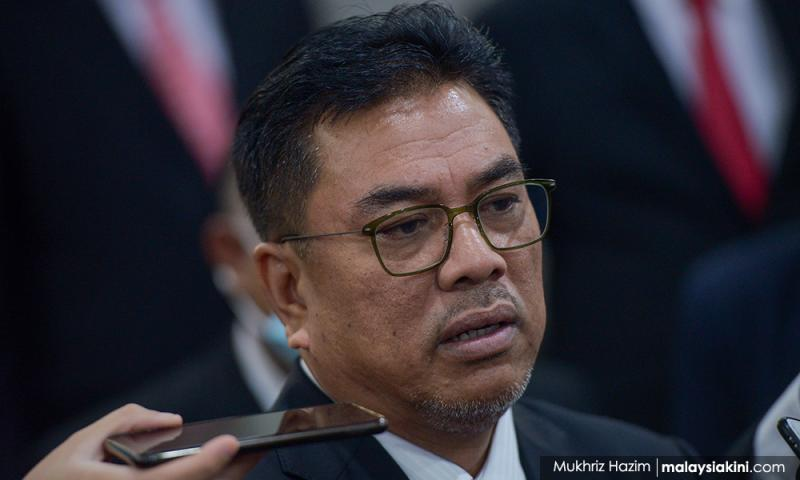
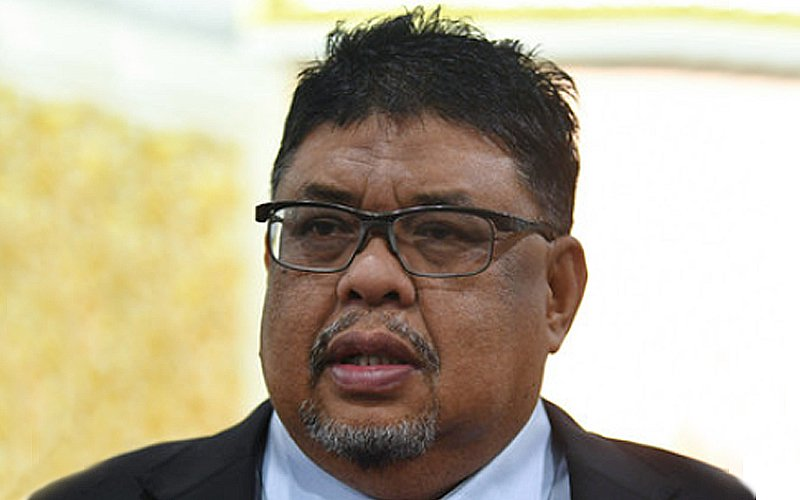
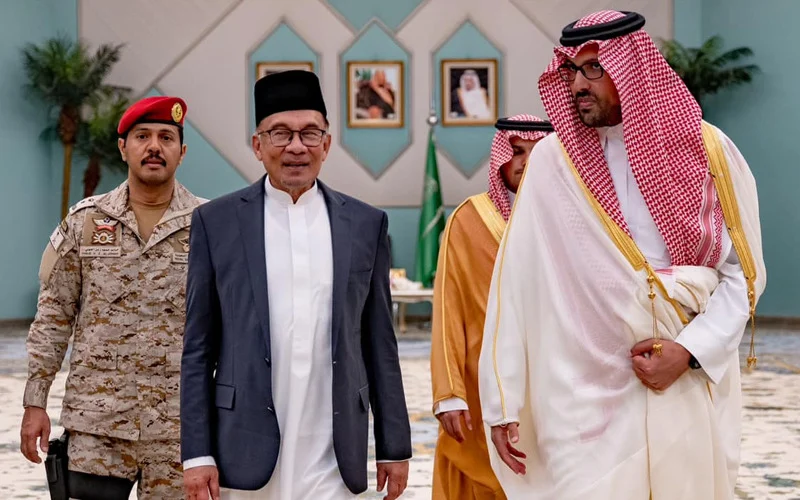


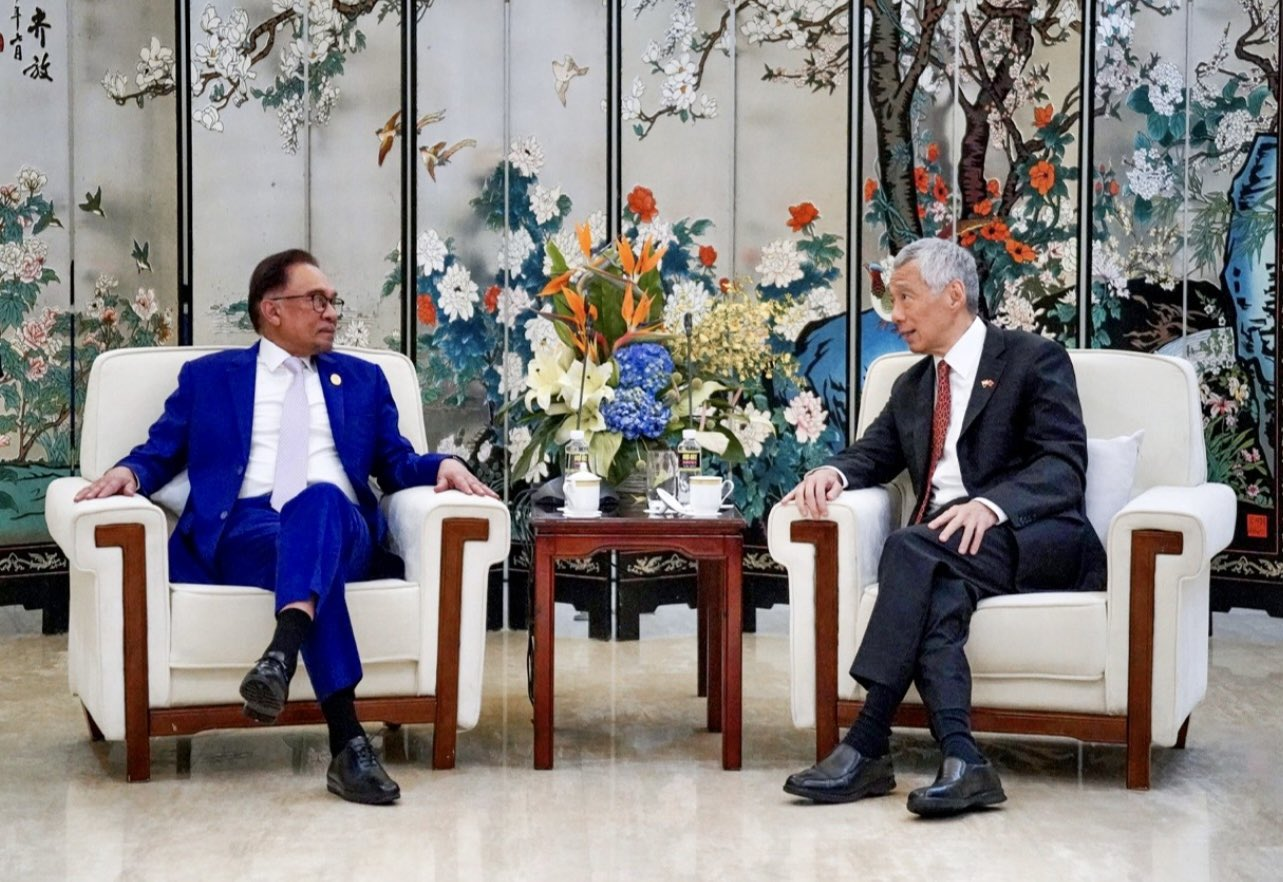

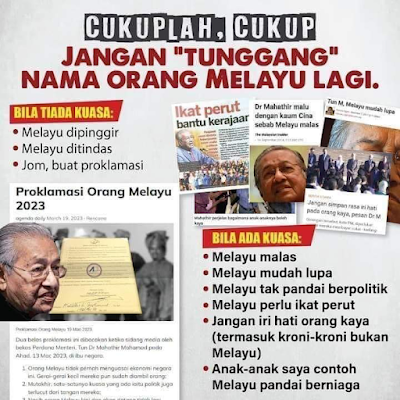






{ 0 comments... read them below or add one }
Post a Comment